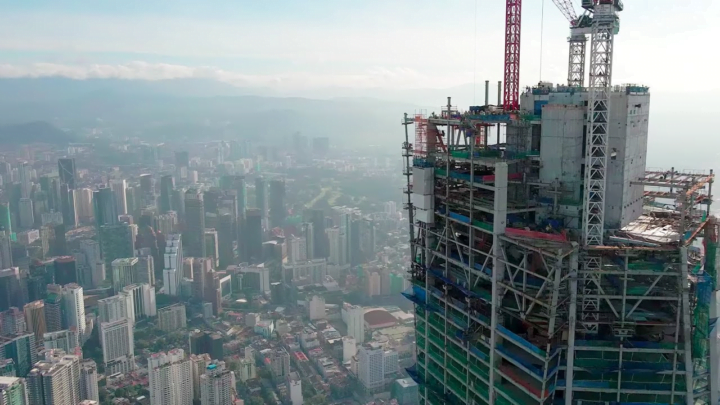The Video Game Development Process: Level Up Your Knowledge!
The experiences we cherish as gamers are crafted by talented teams who translate a spark of ideas into the entire world. But how exactly does this transformation occur? Join me as we delve into the odyssey of the video game development process, exploring the stages that bring a game from concept to controller.
The Emotional Side of Creating Games
The journey of game development is not just a technical process; it’s an emotional journey. From the thrill of seeing your creation come to life to the stress of meeting deadlines, here are some of the emotional and psychological aspects of game development:
- Fuel Your Passion: Game development is a marathon, not a sprint. A burning passion for games and a commitment to continuous learning will be your guiding lights. Here, I describe how the process should begin.
- Embrace Learning: The industry is constantly evolving. Familiarise yourself with game design principles, programming languages, and the latest development tools. Resources like online tutorials, university courses, and game development communities can be invaluable assets. I personally did many courses found on Udemy.
- Start Small & Experiment: Begin by creating smaller games or prototypes to hone your skills and refine your ideas. If you need help understanding the design specialisations, read this other article.
- Find Your Tribe: Connect with other aspiring developers, either online or through local meetups. Collaboration, brainstorming sessions, and sharing experiences can be incredibly motivating. In this subreddit, you can advertise yourself or find others to join you.
Pre-Production: Planting the Seeds of Greatness
Imagine a video game as a towering skyscraper. Pre-production is akin to digging the soil and preparing the cement, laying the groundwork upon which everything rests. You need to consider this stage as being dedicated to conceptualising your dream game. Here’s a breakdown of the key activities:

- Brainstorming & Ideation: It all begins with a spark! What kind of experience do you envision? According to a 2023 Gamasutra report, a significant portion of indie developers credit their initial ideas to personal experiences or a desire to fill a void in the gaming landscape. Is it an action-adventure like the Uncharted series, a mind-bending puzzle game like Portal, or a narrative experience like The Last of Us?
- Defining the Core Gameplay: What makes your game genuinely unique? Is it the resource management of Civilization, the combat system of Devil May Cry, or the narrative choices found in games like BioWare’s Dragon Age series? Ironing out the core mechanics that will keep players engaged is crucial at this stage.
- World-Building & Storycrafting: Envision the universe your players will inhabit. Will they explore a fantasy realm like Middle-earth in the Lord of the Rings franchise, a neon-lit cyberpunk city like Night City in Cyberpunk 2077, or a hauntingly beautiful underwater world like the one in Subnautica? Craft a compelling story that weaves seamlessly with the gameplay, drawing inspiration from existing narratives or forging a path entirely your own.
- Target Audience: Who are you making this game for? Understanding your target demographic is essential. A game aimed at children will likely prioritise a more lighthearted tone and more straightforward mechanics. Hardcore gamers would prefer a complex strategy game.
Production: Bringing the Vision to Life
Pre-production laid the groundwork, and now it’s time to build the magnificent building! All the departments come together to breathe life into your vision in the production phase. Get ready for some severe collaboration:
- Art & Design: Here’s where the magic happens! Concept artists translate your initial ideas into stunning visuals, breathing life into characters and environments. 3D modellers and 2D artists sculpt these concepts into digital masterpieces. Animators make them move with fluidity and purpose, while UI/UX designers craft intuitive interfaces for a seamless player experience.
- Programming & Engineering: The architects of the game’s core systems! Programmers translate the gameplay mechanics you defined in pre-production into code, ensuring every action feels responsive and the world functions flawlessly. Engine specialists choose the proper development tools to power your creation. They can use popular options, including Unity, Unreal Engine, and now Godot, which is gaining popularity.
- Sound Design & Music Composition: Imagine the thrill of a boss battle without the heart-pounding music or the eerie silence of a haunted mansion. Sound designers meticulously craft every audio cue, from the crunch of a headshot to the creak of a floorboard. Composers create an unforgettable soundtrack that elevates the emotional impact of the game, drawing inspiration from established musical styles or forging a unique soundscape.
- Level Design: This is where the world becomes your playground! Level designers meticulously craft each stage, ensuring a captivating flow of challenges, exploration, and storytelling that keeps players engaged. They take into account enemy placement, puzzle design, and environmental storytelling to create a cohesive and dynamic experience.

Early Access: Refining the Experience (Optional)
The development path is sometimes linear. Some developers, particularly those in the indie space, opt for Early Access, where a platform like Steam allows them to release a playable version of the game to a limited audience. This approach offers several advantages, but it’s not without its challenges:
- Gathering Player Feedback: Early access players become active participants in the various video game development process. Their bug reports, suggestions on gameplay balance, and overall impressions on the art style and story help developers polish the game and ensure a smoother final product. This can be seen in the development of Hades [invalid URL removed]), a dungeon crawler where early access feedback helped refine difficulty, weapon balance, and the overall narrative structure.
- Early access fosters a passionate community around your game. Players become more than just players invested in its success, generating positive word-of-mouth through online forums and social media, and building anticipation for the official launch. This community engagement and their active participation in shaping the game were crucial for the success of titles like Rust [invalid URL removed]).
However, Early Access isn’t without its challenges. Releasing an unfinished product can lead to negative reviews if core gameplay elements are clunky or if bugs are too prevalent. Managing player expectations and maintaining clear communication throughout the process are crucial for a successful Early Access experience.
Launch: The Grand Opening!
After months, maybe even years, of tireless work, it’s finally here – launch day! Your game is unleashed upon the world, ready to captivate players and hopefully become the next big hit:
- Marketing & Promotion: Getting your game noticed in a crowded marketplace is crucial. This involves crafting captivating trailers that showcase the core gameplay and emotional impact of the experience. Engaging with gaming communities on platforms like Discord and Reddit allows you to connect directly with potential players. Collaboration with influencers and streamers can also significantly boost visibility. Here are some successful strategies used by popular games:
- Reviews & Press Coverage: Positive reviews from gaming publications and coverage by major media outlets can significantly boost your game’s sales. Actively reaching out to reviewers and providing them with early access or press kits containing relevant information about the game can help secure valuable coverage.

Post-Release: Keeping the Flame Alive
The game is out, but the development journey continues! Here’s how developers ensure a thriving post-launch experience, always learning and improving to keep the flame of the game alive.
- Bug Fixes & Updates: Every game is flawed. Developers actively address bugs reported by players through online forums and social media. Releasing updates that fix these issues and introduce new content or features helps maintain player engagement.
- Downloadable Content (DLC): Expanding the game world with new levels, characters, or storylines can keep players engaged and coming back for more. The Witcher 3: Wild Hunt is a prime example of how well-crafted DLC can add significant value to the core game, extending playtime and offering players fresh experiences.
- Community Engagement: Fostering a solid community around your game goes a long way. Hosting online events and contests and interacting with players through social media show that you care about their experience. This approach can be seen with games like Fortnite, where developer Epic Games constantly adds new content and challenges, keeping the community engaged and excited.
So, the next time you lose yourself in a captivating video game world, remember the incredible journey it took to get there. From the initial spark of an idea to the collaborative efforts of talented developers, every aspect of game creation is meticulously crafted to bring an unforgettable experience to life.
